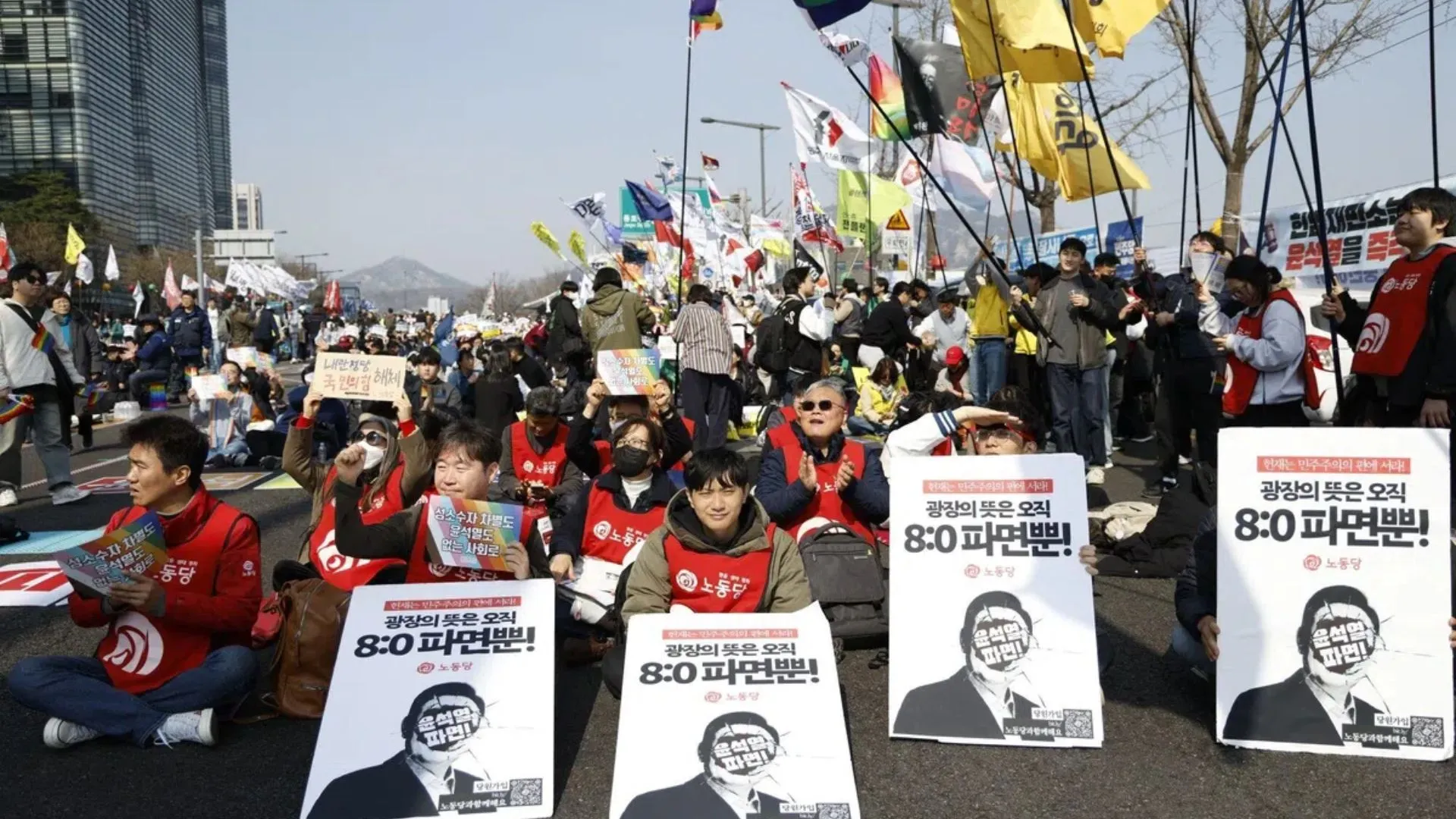In a dramatic and unprecedented sequence of events, South Korea has seen the impeachment and ousting of President Yoon Suk Yeol, precipitating a snap presidential election on June 3, 2025. The political crisis has profound implications for the country’s democratic institutions and governance in the future.
Declaration of Martial Law and Subsequent Impeachment
On December 3, 2024, President Yoon Suk Yeol imposed martial law based on purported pro-North Korean sympathies of the members of the National Assembly. This first-ever imposition required shelving legislative business and sending troops to surround the National Assembly, a response reminiscent of South Korea’s repressive past. The announcement was greeted with instantaneous and nationwide opposition in the form of mass protests throughout the country. In retaliation, the National Assembly approved an emergency motion annulling the martial law proclamation within hours. The political crisis intensified as the National Assembly initiated impeachment proceedings against Yoon.
A first impeachment motion on December 7 failed when members of the ruling People Power Party (PPP) boycotted the session to deny quorum for voting. Nonetheless, there was a subsequent December 14 vote that worked, with 204 of 300 lawmakers casting impeachment votes in support, along with 12 of Yoon’s own party members. It resulted in the instant suspension of Yoon from presidential responsibilities and led to the temporary takeover by Prime Minister Han Duck-soo of the duties as acting president.
Constitutional Court’s Ruling and Yoon’s Ouster
The Constitutional Court hastened its hearing of the impeachment case, citing both the gravity of the matter and the interest of the public.
The court on a unanimous 8–0 ruling affirming the National Assembly’s impeachment of Yoon rendered its judgment on April 4, 2025.
The court identified five key constitutional offenses, of which are the illegal proclamation of martial law, interference with legislative procedure, and abuse of military power. The ruling underscored that Yoon’s actions were grave violations of the Constitution and a betrayal of public trust. Following the court’s ruling, Yoon was officially ousted from office, the shortest-serving president in South Korea’s democratic history. He was also barred from public office for five years.
After his ouster, Yoon left the presidential compound and went back to his private apartment in Seoul’s Gangnam neighborhood, his wife, and their 11 pets. The relocation drew both supporters and critics, reflecting the intense divisions in South Korean society. Court Hearings and Likely Penalties to Yoon Along with his impeachment, Yoon also has severe legal issues. He has been indicted on charges of inciting rebellion over his attempt to declare martial law, and the charge includes the potential penalty of life imprisonment or death. While a court dismissed his arrest in March and enabled his release from detention, the legal action continues and garners substantial public and media attention.
Snap Presidential Election to be Held
According to the provisions of South Korea’s constitution, a fresh presidential election is to be conducted within 60 days after the ouster of a president. Acting President Han Duck-soo released the news that the snap election will be held on June 3, 2025. The winner will have a full five-year term, and the inauguration will follow immediately after the results are officially confirmed.
Political Landscape and Prominent Candidates
The next election will likely be a battle between the conservative People Power Party (PPP) and the liberal Democratic Party, with the PPP struggling with internal conflict and eroding public confidence following the contentious behavior of Yoon. Possible candidates from the conservative standpoint include former Labor Minister Kim Moon-soo and Seoul Mayor Oh Se-hoon, who are both attempting to distance themselves from the tainted reputation of Yoon.
On the liberal camp, Lee Jae-myung, the Democratic Party leader and 2022 challenger to Yoon, has stepped forward as one of the contenders. Despite appearing in multiple trials for corruption charges, Lee retained a robust supporter base, claiming to be a populist reformist. Current polling suggests that Lee enjoys a notable lead over the conservative competition with around 37% support.
Public Sentiment and Societal Implications
The impeachment and dismissal of President Yoon have invited divergent opinion from the general public in South Korea. Many citizens see developments as a fair defense of democracy, but a section of society still supports Yoon, generating polarization in the country. Mobs of protestors and counter-protestors became a frequent experience, an image of the division of sentiments back home. This has also set alarm bells for possible provocations from North Korea, and with this, military security measures had to be fortified by the acting president.
Conclusion
The political crisis in South Korea in recent times, characterized by the impeachment and ousting of President Yoon Suk Yeol, has highlighted the strength of its democratic institutions. As the country approaches the snap presidential election scheduled for June 3, 2025, the fate of the election will determine South Korea’s political future and how to address the issues that have arisen from these troubled times.























